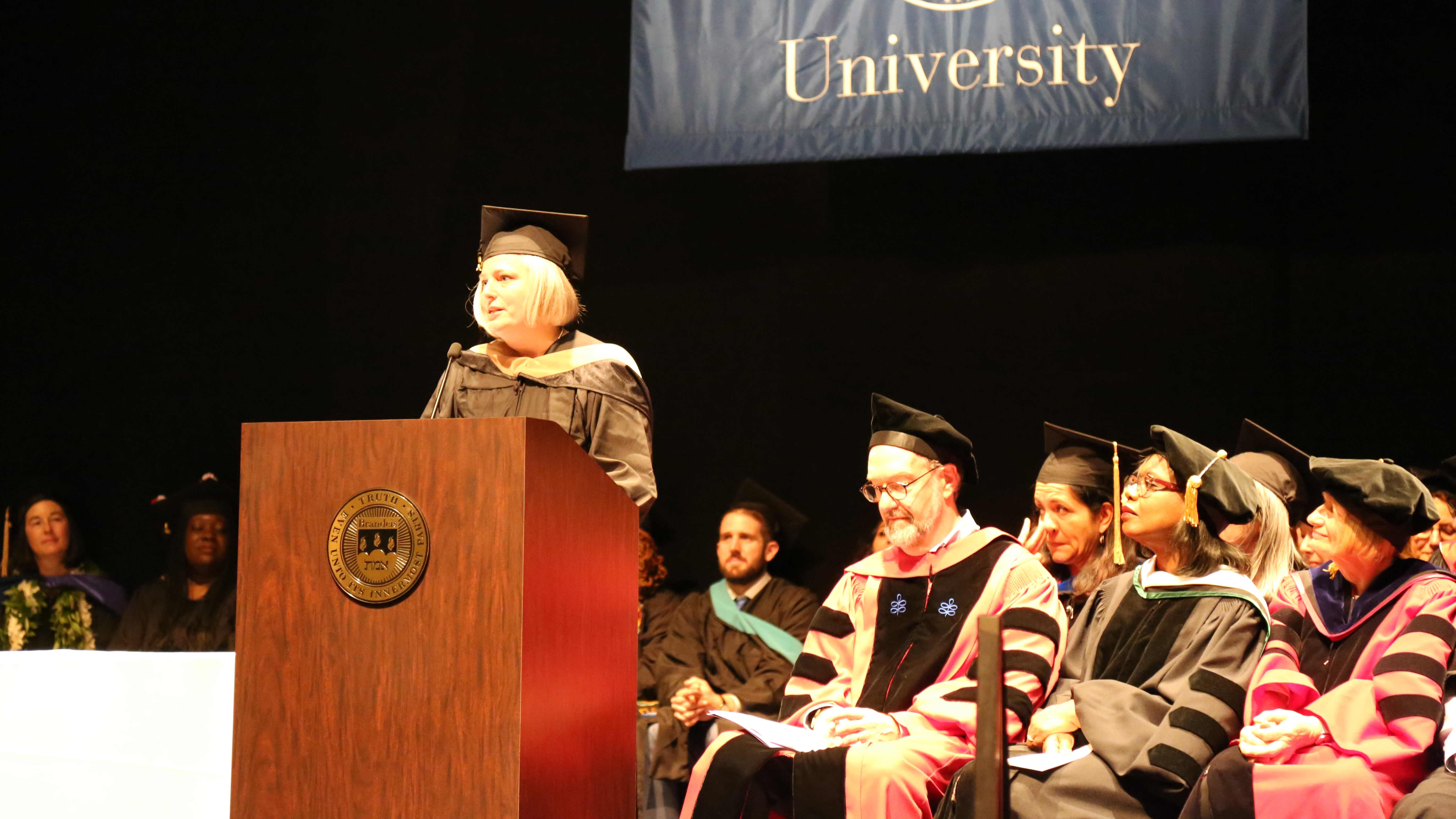
Dean Weil, members of the faculty, distinguished guests, and fellow graduates, it is an honor and a privilege to represent our class here this morning. On behalf of my 41 accomplished peers, I would like to extend our deepest gratitude to our spouses, significant others, parents, and children – without whose support this journey would have been impossible.
A year ago in January, we arrived at the Heller School, already leaders in our medical and dental fields, with full clinical practices, heavy hospital and administrative responsibilities, and serious time deficits. But as much as we had on our professional plates, we believed that something was missing. Those missing somethings were the mental models and approaches to problem solving that we learned in strategy, organizational behavior, and systems thinking, and, perhaps most important, the personal introspection and self-management techniques we gained from our physician field experience coursework. Dr. Chilingerian and his hand-selected team of stellar professors have given us the unique mid-career gift of intense and fruitful study. Today, armed with these new frameworks, we are poised to create much needed healthcare change at the local, state, and national levels.
Last week, we shared our capstone leadership projects with each other. While we come from different home institutions and different specialties, the common themes of our projects were reduction of clinical variability, improved compliance with best practice, and streamlining of processes to save time for our patients and to save money for our healthcare system. These endeavors benefit everyone.
As I reflect on my time in the EMBA program, and look ahead to the work now before us, I’d like to leave you with three guiding principles to inform our future efforts.
First, our outcomes will be best when we work together. This is often counterintuitive to physicians who have built their careers achieving as individuals. Yet, as leaders, we must insist on teaming up, and we must coach our colleagues and our staff to foster this collaboration.
Second, we need to listen for the quiet voices, because without them, we may lose important perspectives, and we may fail. Our responsibility as leaders is to make space for dissenting viewpoints and to make sure that everyone is heard. This is not just an equitable approach – it is a mandatory approach if we want to achieve the best possible results.
Finally, we must challenge ourselves to assume the best of intentions in our colleagues. Our work is difficult on the best of days. As leaders, it is our responsibility to create a culture of empathy, support and trust in our teams. We must take care of our partners. Our forward progress depends on this.
Thank you Jon, for having the foresight to create this EMBA program in the new science of medicine and management. The future is now in our hands. We will make a difference. We will make you proud.
